Welcome to the latest in a new series of sponsored articles showcasing some of the latest white papers and webinars from physics-based businesses around the world
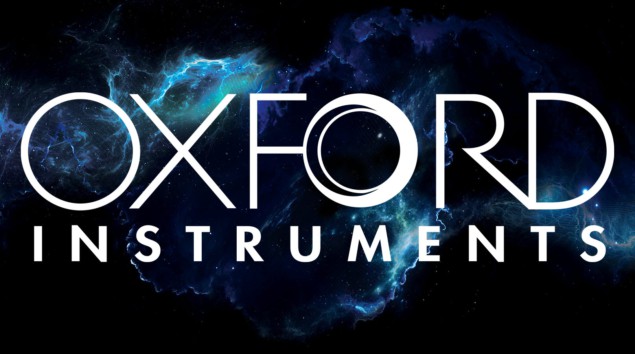
This time we are featuring a series of seven webinars from Oxford Instruments
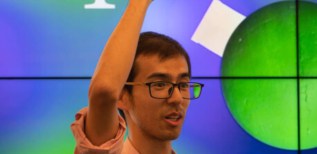 The company’s headline “guest presentation” is from Sheng Ran from the University of Maryland and the National Institute of Standards and Technology in the US, who won the 2020 Lee Osheroff Richardson science prize for North and South America. Specializing in the discovery and characterization of exotic quantum materials, Ran’s webinar is entitled “Spin-triplet superconducting state in the nearly ferromagnetic compound UTe2”. The superconducting state of UTe2 is like that in ferromagnetic superconductors, but the normal state is paramagnetic and shows no indication of magnetic ordering. Along with a very big anisotropic upper critical field, temperature independent NMR Knight shift and a large residual normal electronic density of states, these facts strongly suggest its superconductivity is carried by spin-triplet pairs.
The company’s headline “guest presentation” is from Sheng Ran from the University of Maryland and the National Institute of Standards and Technology in the US, who won the 2020 Lee Osheroff Richardson science prize for North and South America. Specializing in the discovery and characterization of exotic quantum materials, Ran’s webinar is entitled “Spin-triplet superconducting state in the nearly ferromagnetic compound UTe2”. The superconducting state of UTe2 is like that in ferromagnetic superconductors, but the normal state is paramagnetic and shows no indication of magnetic ordering. Along with a very big anisotropic upper critical field, temperature independent NMR Knight shift and a large residual normal electronic density of states, these facts strongly suggest its superconductivity is carried by spin-triplet pairs.
Other presentations
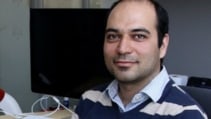 In “Transport properties of low dimensional semiconductors”, Javad Shabani from New York University describes how near-surface quantum wells with strong spin-orbit coupling can be interfaced epitaxially with superconducting films and have proved as a robust platform for exploring mesoscopic and topological superconductivity. Shabani shows he used a 12T Teslatron top-loader system to study transport properties of such quantum wells, quantum Hall effect, Shubnikov de Haas mass measurements and spin orbit coupling in these 2D gas systems.
In “Transport properties of low dimensional semiconductors”, Javad Shabani from New York University describes how near-surface quantum wells with strong spin-orbit coupling can be interfaced epitaxially with superconducting films and have proved as a robust platform for exploring mesoscopic and topological superconductivity. Shabani shows he used a 12T Teslatron top-loader system to study transport properties of such quantum wells, quantum Hall effect, Shubnikov de Haas mass measurements and spin orbit coupling in these 2D gas systems.
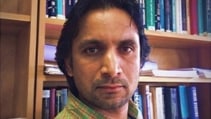 In “Conductance quantisation in one-dimensional fractional electrons”, you can hear from Sanjeev Kumar from University College London, whose group looks at quantum transport in low-dimensional semiconductor nanostructures. In the talk, Kumar present results on recently discovered zero-magnetic fractional conductance quantisation in quasi-1D electrons in GaAs/AlGaAs semiconductor heterostructures. He also shows how these non-magnetic fractional states could have applications in future quantum technologies.
In “Conductance quantisation in one-dimensional fractional electrons”, you can hear from Sanjeev Kumar from University College London, whose group looks at quantum transport in low-dimensional semiconductor nanostructures. In the talk, Kumar present results on recently discovered zero-magnetic fractional conductance quantisation in quasi-1D electrons in GaAs/AlGaAs semiconductor heterostructures. He also shows how these non-magnetic fractional states could have applications in future quantum technologies.
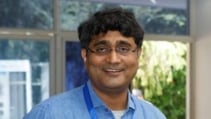 The fourth webinar is from Mandar Deshmukh from the renowned Tata Institute of Fundamental Research in Mumbai, India, where he’s been a faculty member since 2006. In “Studying the flow of electrons in few-layer graphene”, Deshmukh describes his fascination with 2D materials, not just monolayer graphene but also few-layer graphene systems, which let researchers study how electrons interact in such systems. Few-layer graphene also lets you break simple symmetries and study their consequences.
The fourth webinar is from Mandar Deshmukh from the renowned Tata Institute of Fundamental Research in Mumbai, India, where he’s been a faculty member since 2006. In “Studying the flow of electrons in few-layer graphene”, Deshmukh describes his fascination with 2D materials, not just monolayer graphene but also few-layer graphene systems, which let researchers study how electrons interact in such systems. Few-layer graphene also lets you break simple symmetries and study their consequences.
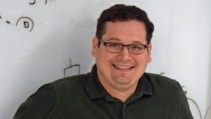 Next up is Michael Hatridge from the University of Pittsburgh, where his group – the “Hatlab” – builds quantum circuits for quantum information processing and exploring fundamental physics, especially quantum measurement. In his webinar “Parametrically driven gates and loss operators in superconducting circuits”, Hartridge explains how “third-order” nonlinearities can power parametrically-driven microwave amplifiers for measuring superconducting qubits, presenting two new experiments that can control and couple transmon qubits and high-Q cavities.
Next up is Michael Hatridge from the University of Pittsburgh, where his group – the “Hatlab” – builds quantum circuits for quantum information processing and exploring fundamental physics, especially quantum measurement. In his webinar “Parametrically driven gates and loss operators in superconducting circuits”, Hartridge explains how “third-order” nonlinearities can power parametrically-driven microwave amplifiers for measuring superconducting qubits, presenting two new experiments that can control and couple transmon qubits and high-Q cavities.
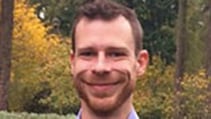 In “Quantum computing and qubit scale-up applications with Proteox”, you can hear from James Robinson, a product manager at Oxford Instruments NanoScience in the UK. Robinson provides an overview of the company’s new Proteox dilution refrigerator, highlighting the key features and how it’s suitable for many quantum computing and qubit scale-up applications.
In “Quantum computing and qubit scale-up applications with Proteox”, you can hear from James Robinson, a product manager at Oxford Instruments NanoScience in the UK. Robinson provides an overview of the company’s new Proteox dilution refrigerator, highlighting the key features and how it’s suitable for many quantum computing and qubit scale-up applications.
 The final Oxford Instruments webinar is given by Mengqiao Sui, application manager at Oxford Instruments NanoScience in Beijing, China, who is speaking on “Cryofree magnet system for low temperature transport measurement”. In the webinar, Mengqiao discusses the measurement probes, sample protecting units and the quantum transport measurement system, which are vital for measuring electrical transport at low temperatures. As well as describing Oxford Instruments’ TeslatronPT superconducting magnet system, he also explains how the company’s Demolab in Shanghai is helping researchers and customers.
The final Oxford Instruments webinar is given by Mengqiao Sui, application manager at Oxford Instruments NanoScience in Beijing, China, who is speaking on “Cryofree magnet system for low temperature transport measurement”. In the webinar, Mengqiao discusses the measurement probes, sample protecting units and the quantum transport measurement system, which are vital for measuring electrical transport at low temperatures. As well as describing Oxford Instruments’ TeslatronPT superconducting magnet system, he also explains how the company’s Demolab in Shanghai is helping researchers and customers.
